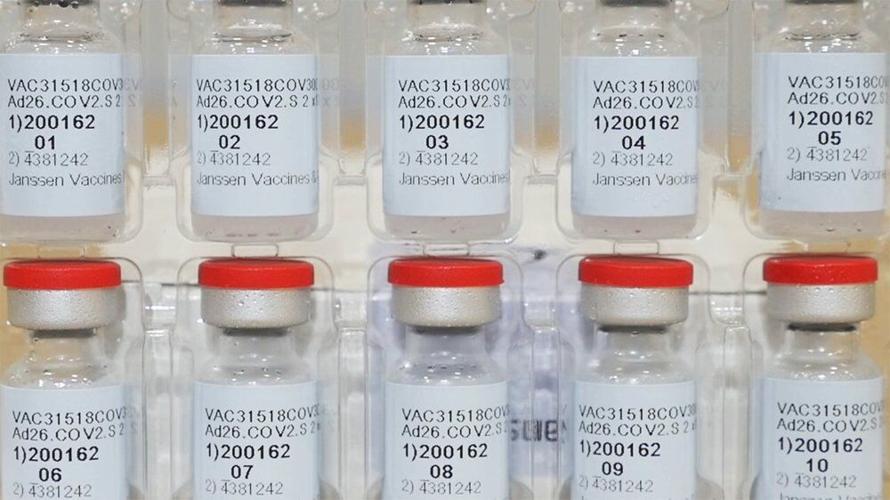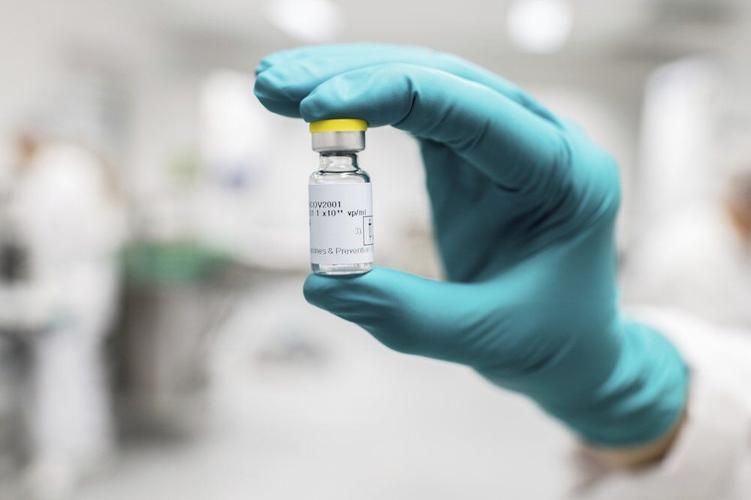LOUISVILLE, Ky. (WDRB) -- The U.S. Food and Drug Administration on Saturday authorized Johnson & Johnson's COVID-19 vaccine, according to a report from CNN.
J&J's vaccine is the first single-dose vaccine available in the United States and "checks nearly all the boxes," said Dr. Greg Poland, head of the Mayo Clinic's Vaccine Research Group.
Health experts are anxiously awaiting a one-and-done option to help speed vaccinations, as they race against a virus that already has killed more than 510,000 people in the U.S. and is mutating in increasingly worrisome ways.
The FDA said J&J’s vaccine offers strong protection against what matters most: serious illness, hospitalizations and death. One dose was 85% protective against the most severe COVID-19 illness, in a massive study that spanned three continents — protection that remained strong even in countries such as South Africa, where the variants of most concern are spreading.
"The more vaccines that have high efficacy that we can get into play, the better," Dr. Anthony Fauci, the top U.S. infectious disease expert, said ahead of the FDA’s ruling.
Made by J&J's vaccine arm, Janssen, the vaccine is authorized for people ages 18 and older and doesn't require special storage. Shipments of a few million doses to be divided among states could begin as early as Monday. By the end of March, J&J has said it expects to deliver 20 million doses to the U.S., and 100 million by summer.
The vaccine was tested in more than 44,000 people in the United States, South Africa and Latin America. Globally, it was 66.1% effective against moderate to severe/critical COVID-19 at least four weeks after vaccination, according to an FDA analysis. In the U.S., it is considered 72% effective, and offered 86% protection against severe forms of the disease.
"One dose will keep you out of the hospital, keep you out of the intensive care unit and keep you out of the morgue," Dr. Paul Offit, a vaccine adviser to the FDA, told CNN's Wolf Blitzer on Friday.
The vaccine comes with few side effects, most of which are mild, including pain at the injection site, headache, fatigue and muscle pain.
Overall, non-fatal serious adverse events were infrequent, according to the FDA's analysis, and there were no reported cases of anaphylaxis following vaccination in the trial. There have been a small number of severe allergic reactions with the Moderna and Pfizer/BioNTech vaccines. For example, in the first week of the Pfizer vaccine rollout, there were only 29 cases out of 1.9 million doses administered, according to the US Centers for Disease Control and Prevention.
Public health experts said people should take whatever shot is first available to them.
"If I had a J&J vaccine available today and a Moderna vaccine available tomorrow, I would be happy to take the J&J today," said Dr. Ashish Jha, dean of the Brown University School of Public Health, during a House Ways and Means Health Subcommittee hearing Friday. "I don't feel like I would need to wait. They are all terrific vaccines for the things that we care about."
More research is needed, but the FDA analysis also hinted that the J&J vaccine may help prevent asymptomatic infections.
A January study from the Centers for Disease Control and Prevention showed that most coronavirus cases are spread by people without symptoms. If a vaccine prevented asymptomatic infection, it might help reduce opportunities to transmit the disease — not just keep the vaccinated from getting sick.
With so much positive data, an independent group of advisers voted unanimously on Friday to recommend the emergency use authorization of the J&J vaccine.
"I think it's a relatively easy call. It clearly gets way over the bar, and it's nice to have a single-dose vaccine," said Dr. Eric Rubin, a committee member who is also the editor in chief of The New England Journal of Medicine and a professor at the Harvard T.H. Chan School of Public Health, after the vote.
There is some concern that members of the public will think J&J's vaccine is a "second-class" vaccine because people have heard that the shot is only 72% protective in the US compared to Pfizer and Moderna being about 95% protective. Experts, however, said those numbers are highly misleading.
"It's difficult to make an apples-to-apples comparison between vaccines authorized based on data collected before new variants are believed to have been in widespread circulation," said Sarah Christopher, the policy advocacy director at the National Women's Health Network. Christopher spoke during the public comment section of the FDA's advisory meeting on Friday.
The Pfizer and Moderna vaccines were tested earlier in the pandemic when there were fewer known variants. FDA research found that the majority of the cases that happened during the South African part of the J&J trial came from a newer and possibly more contagious variant.
The advancement of the Johnson & Johnson coronavirus vaccine is "really good news for the world," Dr. Francis Collins, director of the National Institutes of Health, told CNN's Wolf Blitzer on Friday. Even with cases in the US declining recently, the pandemic is far from over.
"The best way to get done is with this vaccine being added to the others," Collins said.
The Associated Press contributed to this report. Copyright 2021 WDRB Media and CNN. All Rights Reserved.







